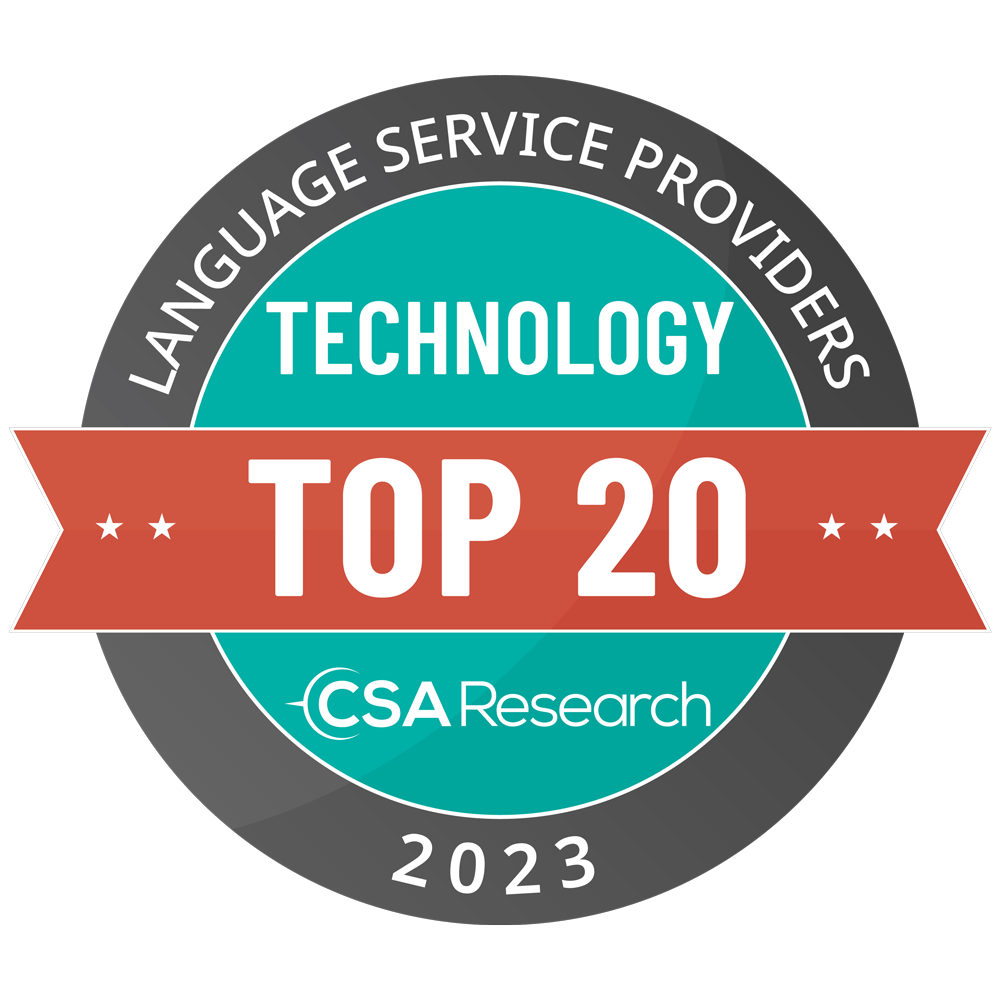
In today’s AI-driven world, ensuring ironclad data security is paramount for companies looking to harness the benefits of Artificial Intelligence (AI) and Machine Translation (MT). With the proliferation of free generative AI tools posing data exfiltration risks, it’s crucial to implement robust security strategies and maintain regulatory compliance when deploying AI solutions.
When integrating third-party AI and MT providers, prioritize those with stringent security measures and industry-standard data protection practices to safeguard sensitive information. Here’s how to ensure data security and compliance when working with external AI providers.
Definitions for Data Security and AI
| TERM | DEFINITION |
|---|---|
| Foundation Models | Large-scale machine learning (ML) models that are trained on a large amount of data and can be used for a broad range of tasks. |
| Adapter Models | ML models that work in conjunction with a Foundation Model to improve the performance of specialized tasks. |
| Training | The process of using data to train Foundation & Adapter models. |
| Prediction | The processing of inputs with ML models to generate outputs. |
| Safety Classifiers | During the Prediction process, they identify specific content categories, such as potentially violent material. |
Verify Private Handling of Customer Data
When selecting AI/MT providers, it’s crucial to ensure they refrain from using customer data to train their foundation models. Clients should have the confidence that their data remains protected and is not at risk of being incorporated into foundational model training processes.
Ensure the Privacy of Adapter Models and Data
Securely handling customer data used to train adapter models is imperative to prevent unauthorized access or storage. Providers must guarantee that adapter models are solely accessible to the customer who created them, with no claims of ownership from the provider. Encryption of customer data during storage and transit is necessary, giving customers control over encryption keys (CMEK), ACLs, MFA, and the ability to delete adapter models anytime.
Data Retention Policy
To safeguard customer information during prediction processing, the provider must only retain inputs and outputs generated by foundation models, adapter models, and safety classifiers within the necessary duration to produce the intended output. Check the supplier’s data retention policy to ensure the supplier keeps the data for no longer than necessary.
Opt out of Pre-Release Data Sharing
Prioritize data privacy by opting out of sharing information with providers to enhance pre-General Availability (GA) AI/ML services. Protecting valuable data from unauthorized use in beta or pre-release programs is essential to maintain confidentiality and control over sensitive information.
Manage Access to AI Web Portals
Controlling access to AI systems through web browsers is crucial to data security. Establish firewall policies to regulate access based on URLs, IP addresses, and user groups. This approach ensures that only authorized personnel can interact with AI platforms. Additionally, compliance policies should be implemented that incorporate data barriers, sensitive data tagging, and thorough data classification.
Cross-Border Data Transfers and Compliance
Navigating the complexities of cross-border data transfers is vital to data security and privacy in AI systems. To prevent unauthorized access or transfer of sensitive data, ensure compliance with data protection regulations and standards across different jurisdictions. Ensure your systems adhere to stringent data transfer protocols, implement data localization measures where necessary, and stay abreast of evolving data privacy laws. For systems operating on a global scale, cross-border data security is essential.
Adopt an AI Management System
Integrate an AI Management System (AIMS) to govern and manage AI systems while mitigating associated risks effectively. Consider implementing the ISO/IEC 42001 AI management standard, which offers a structured approach to address challenges related to AI implementations. This system establishes appropriate oversight, fosters dynamic technology development, and facilitates regular risk assessments to optimize AI deployment strategies. (ISO)
Conclusion
Choosing a language services partner that understands data security and compliance complexities in the AI era is crucial. MediaLocate excels in responsibly integrating and managing AI solutions. Take proactive steps to secure your data with a reliable partner, ensuring your organization’s success in AI.











